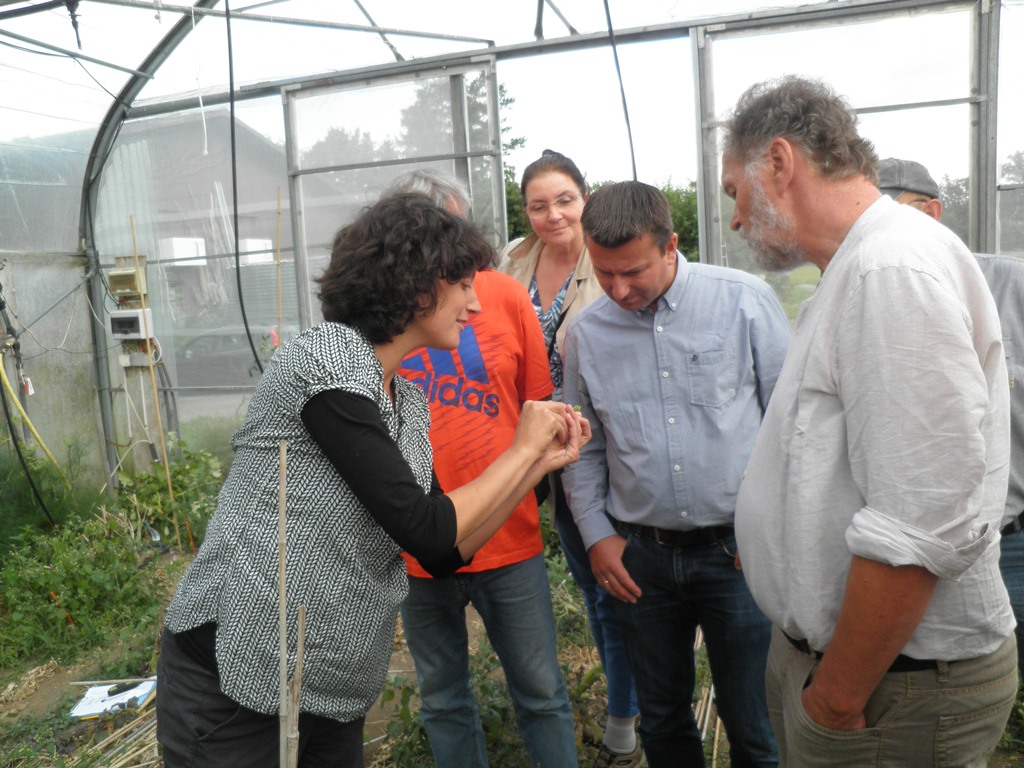Learning about plant breeding with organic vegetable grower Sativa Rheinau

The aims of Sativa Rheinau AG, a Swiss organic cultivation business, is to make organic farming independent by using its own organic seeds and therefore maintain diversity of varieties.
The issue is urgent and, to find out why this is the case, you only have to look at the current plant and seed growers’ market. There are only a few seed companies, which control the majority of the commercial market and are bent on selling no varieties other than their own as far as possible. The resulting problem is a one-sided focus on a few standard and high yield varieties in vegetable growing, which reduces the diversity of varieties in agricultural crops. However, diversity of varieties is the key for developing new varieties, which match the specific weather and soil conditions of the relevant growing regions.
Organic cultivation especially needs robust plants, which can deliver both good quality and stable yields and which at the same time conform to the conditions of ecological cultivation.
The subject of organic cultivation was neglected for many years and the concentration was more on growing conditions than the origins of the seeds. The cultivation of organic seeds is nevertheless slowly on the increase. More and more seed varieties are developed especially for organic agriculture. Organic cultivation is mainly undertaken where an exchange with the environment takes place: the organic field.
The organic grower Sativa Rheinau arranged a visit this summer: The BioTropic companies as well as organic growers from “Bingenheimer Saatgut” and “saat:gut” attended. The 13 members of the group had the opportunity to look at practical examples of organic growing from Switzerland and Italy. Managing Director Andree Mols from BioTropic, Sascha Suler, the operational manager of the German office, Doris Thewes, the plant manager of the Italian office, and agricultural engineer Mauro Finotti attended.
Sativa Rheinau works with various growers and farmers all over the world. These make fields available for research and exchange results and seeds with other practical supporters such as the Demeter Company Fattoria di Vaira in Italy. The group of visitors was able to inspect various experimental plots where organic seeds are grown according to ecological criteria. In this case, this includes basil, carrots, lettuces, onions and chard over a total area of 9 hectares.
Another destination was the ecologically operating company PMP, where carrots and chard seeds are produced in collaboration with Sativa Rheinau.
“We were able to see a most fascinating and detailed project here,” recalls an impressed Sascha Suler. “Growing according to ecological criteria is time-consuming and needs much detailed work: sowing, harvesting, analysing, selecting and re-sowing every time a new robust seed variety is to be produced. It takes at least 10 years to develop such a reliable seed,” concludes Sascha Suler.
BioTropic also committed itself and found three organic growers, with whom they have already been working for many years. They have already promised to support Sativa Rheinau’s organic cultivation by growing broccoli and cabbage turnip on their own fields. We will report on further progress.
Products grown under organic seed cultivation conditions are offered under the label “Bioverita”. They are of special quality as the organically grown seeds are cultivated and developed on organic soil and for organic cultivation from the very beginning.
Further information can be found at:
Sativa Rheinau AG
Text: Visnja Malesic
Pictures: Markus Johann, Bioverita
Issued: August 2016
Tags: Andree Mols (GB), Basil (GB), Bingenheimer Saatgut (GB), Bioverita (GB), Broccoli (GB), Doris Thewes (GB), Italy (GB), Kohlrabi (GB), Swiss chard (GB), Mauro Finotti (GB), Carrots (GB), Lettuce (GB), Sascha Suler (GB), Sativa Rheinau AG (GB), Switzerland (GB), Onions (GB)





